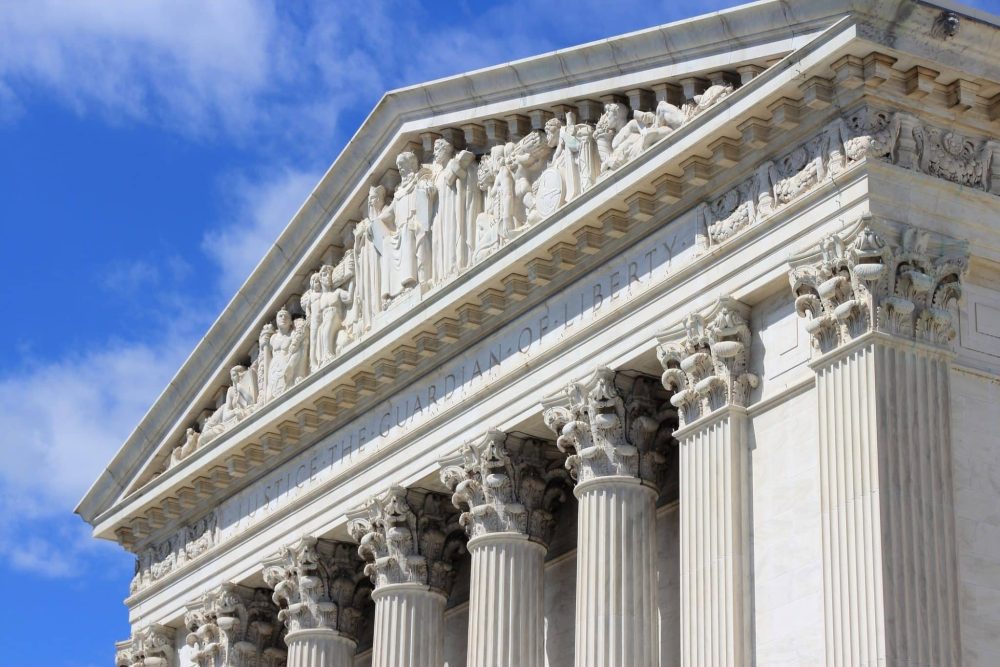The Supreme Court has declined to hear an appeal that questioned the authority of the Food and Drug Administration to reject approvals for flavored e-cigarettes.
The case represents one of several legal challenges against the FDA’s efforts to regulate the vaping industry.
It has captivated a new generation with nicotine and expanded into an $8.2 billion market in less than a decade.
Read More: Juul Will Pay $462 Million To Six States In Vaping Settlement Over Marketing To Children
The 4th Circuit US Court of Appeals ruled that the FDA could reject applications for flavored e-cigarette products.
It’s part of its mandate to safeguard public health by discouraging youngsters from smoking.
This lower court ruling constituted a setback for Avail Vapor, a vape retailer, which argued that the FDA had unfairly rejected its product applications.
A vape retailer, Avail Vapor claimed the FDA had altered its requirements without prior notification to companies.
Read More: Supreme Court Suspends $6 Billion Opioid Settlement
Avail’s attorney, Eric Heyer said the firm is “disappointed that the Supreme Court declined to review the flawed process by which FDA issued its marketing denial orders to Avail without adequate prior notice of the specific longitudinal comparative efficacy study requirements the agency ultimately imposed.”
The FDA issues marketing denial orders as a means to reject product applications.
The agency’s decision in 2021 to reject all of Avail Vapor’s applications for its fruit- and dessert-flavored e-cigarettes served as the core of this legal dispute.
Read More: California Supreme Court Upholds Uber Drivers’ Right To Sue
The FDA said Avail Vapor had not furnished long-term studies demonstrating the superiority of its sweet-flavored vapes in helping adult smokers quit compared to tobacco-flavored e-cigarettes.
These studies were deemed necessary to establish that the benefits of Avail’s products for adults outweighed their risks to young people.
They’re more drawn to e-cigarettes with flavors resembling sweet treats.
Avail’s applications included surveys assessing patient safety and usability and marketing measures aimed at preventing underage use.
Looking to boost your online brand? Create your FREE business profile at WhatBiz? here.
In their appeal to the 4th Circuit, Avail argued that the FDA had never indicated the need for long-term studies comparing fruit and dessert-flavored e-cigarettes with tobacco-flavored ones.
The 4th Circuit Judge J. Harvie Wilkinson stated Avail’s focus on procedural objections detracted from the FDA’s core mandate to prevent nicotine and tobacco addiction in another generation.
Wilkinson said the FDA had not rejected the applications due to the lack of specific long-term studies.
Instead, the agency had adhered to its mandate by requiring robust, product-specific evidence to evaluate the benefits of new e-cigarette products for adults, evidence which Avail had not supplied.
Need Career Advice? Get employment skills advice at all levels of your career
Avail Vapor ceased its retail operations after selling all 100 brick-and-mortar stores in October 2021 following the FDA’s application rejections.
Avail is not the only company to contest FDA rejections.
Last year, Juul Labs also appealed the FDA’s ban on its vaping products, arguing that the FDA’s assessment of its data was flawed.
While some of Juul’s products temporarily returned to the market after an appeal, the FDA ultimately determined that Juul’s products still posed a risk to public health.




